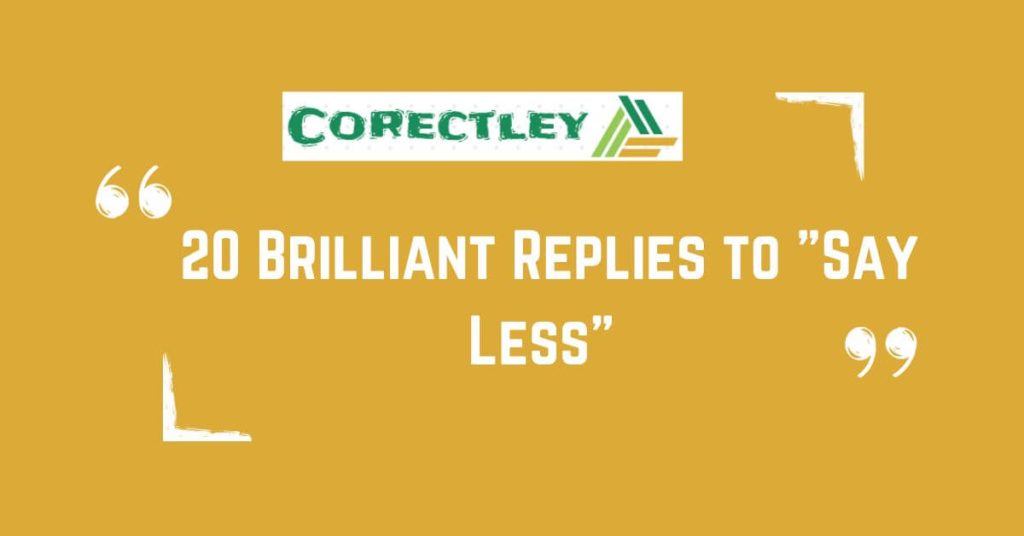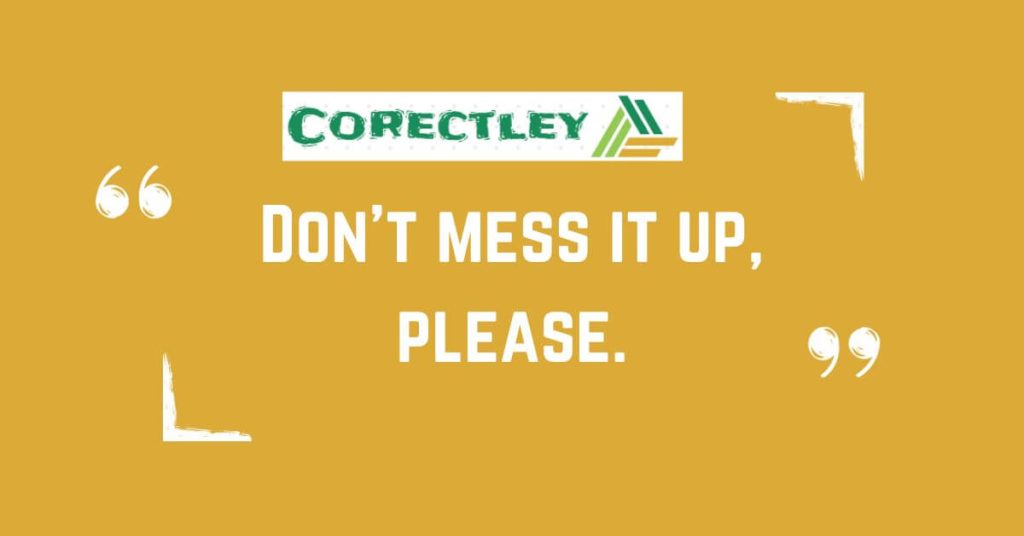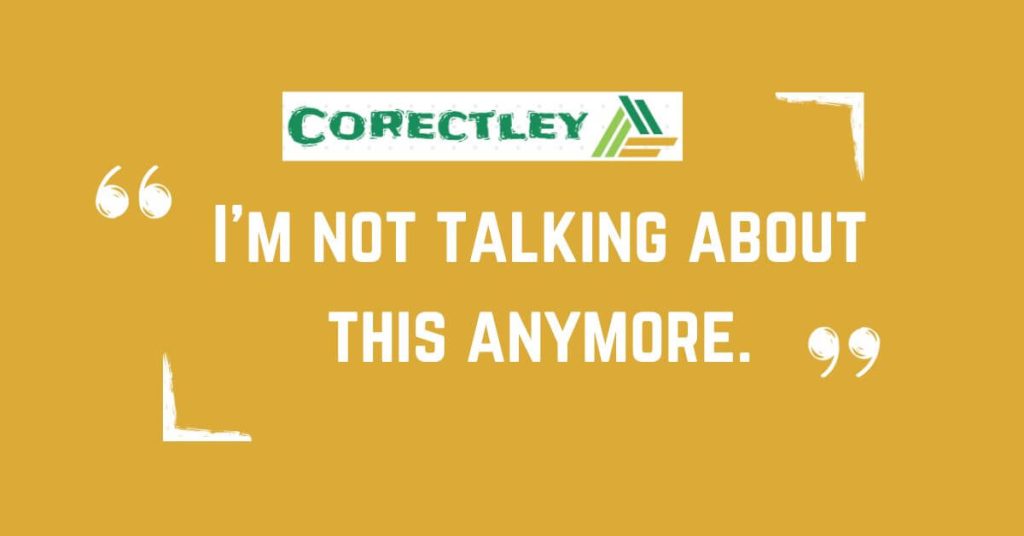Have you at any point been told to “Say less”? We can most likely all think about what the expression implies. We might try and have heard or utilized this expression. This expression has two implications we know and we will take a gander at the two of them in this article and how we can answer the expression.
“Say less” can sound discourteous. Be that as it may, it might be a straightforward affirmation, signifying ‘I comprehend’.

“Say less” is simply one more approach to saying ‘Say no more’. At the point when a person says ‘Say no more’ as far as you might be concerned, it implies the person now comprehends what you mean from the little you’ve said and you don’t have to make sense of further.
“Say less” can likewise essentially imply ‘Quit discussing this’. It would allude to anything point you are examining with the speaker right now. At the point when the person in question says “Say less” while you are talking, it signifies ‘Change the subject. I would rather not hear that any longer.
20 Brilliant Responses To “Say Less”
1. I Trust You.
You can basically say you trust a person who has requested that you “Say less”, that is on the off chance that you feel as such.
This reaction ought to be thought of if “Say less” has been utilized to actually imply ‘Say no more’. At the point when the person tells you to “Say less”, the person in question has removed you from your clarification, guaranteeing that your half clarification is as of now obvious to that person.
Saying you trust that person implies you acknowledge to say no more and you accept the person will work really hard.
On the off chance that you don’t think you have given sufficient clarification for that person to get what you are depicting, then it is important to be stressed over what the person will do.
- “I need to have this hairstyle with a… .”
- “Say less”
- “Okay. I trust you.”
2. Don’t mess it up, please.

You may simply need to underline the significance of the venture you are doling out to this person. You wouldn’t believe the person should wreck it after so much demonstration of carelessness.
In the event that a person tells you to “Say less” while you are giving a clarification, you can express this to tell the person you have little to no faith in the person in question completely. This lets the person know that you feel somewhat doubtful about how the person will perform. It will likewise work at the same time as a test to the person in question as the person should not neglect to satisfy you, basically not in the wake of quieting you down in the center of your clarification.
You might need to try and stress this further on the off chance that you figure you didn’t give the full clarification for the person to get precisely the exact thing you need.
Assuming there are a few subtleties that you accept the person may not consider adding, you can choose to tell that person that there are a few unique parts you really want to add which the person may not get accurately on the off chance that you don’t make sense of.
- “Might you at any point make this hairdo for me with a… ..?”
- “Say less”
- “Don’t mess it up, please… I also want to add a…”
3. Are you sure?
Albeit this question is very irritating, you might need to consider how significant what you want is and simply do what you need to do. It would possibly be one lamentable story assuming the person messes up a significant venture subsequent to letting you know that the person comprehends what you have requested.
Posing this inquiry lets the person know that you don’t know the person will get what you have portrayed with such ease. This is a reasonable reaction on the off chance that the person has utilized the expression to communicate how they might interpret what you were talking about.
This is additionally appropriate assuming the person is requesting that you change the point. Posing this inquiry would mean you find it essential to the person and you figure it ought to be talked about. Subsequent to inquiring as to whether the person is certain, you can say why the point ought to in any case be being talked about.
- “He had a long scar to his left side cheek and a… .”
- “Say less”
- “You definitely know him? Is it true that you are certain?”
- “Say less”
- “Are you sure? You will have to answer those questions tomorrow.”
4. I understand.
You can basically show that you comprehend what the person has mentioned of you and you can do as the person has said. Now and again, the expression “Say less” is considered inconsiderate yet that relies upon the point being examined and that it is so essential to the two persons talking about.
Saying you comprehend suggests that you are not annoyed by the sudden way you have been quieted down. Nonetheless, you comprehend the reason why the person can not proceed with the conversation.
On the off chance that the conversation within reach is a private matter that the person can manage alone, you can say you comprehend, then, at that point, pass on the person to manage the issues.
This reaction won’t function as a reaction to ‘Say no more’ since the expression also implies the speaker comprehends.
- “Say less”
- “I understand. We shouldn’t discuss it.”
5. Great
A single-word reaction might be the greatest choice you have for this situation. While single-word reactions frequently sound contemptuous and discourteous, they may likewise mean confidence in a situation where a person has requested your trust.
Saying ‘Great’ as a reaction to somebody who has requested that you ‘Say no more’ is great and will show that you trust the person in question. The way that you have decided not to say anything further about it implies you give up to the person and you are certain the person in question will perform greatly.
In a contention or conversation, expressing Perfect in light of ‘Say no more’ can drive you to appear to be mad about the discourteous request. If you view it unseemly for you as furious at the person, you can change the point right away.
- “I need to look like a… “
- “Say less”
- “Great.”
- “Say less”
- “Great… could you like some tea?”
6. Do your magic
This expression recommends that you have given up. It is something you might actually say without giving any clarification to the person who is intending to chip away at the undertaking. All things considered, this would infer that the person definitely understands what to do and you will be happy with it. Notwithstanding, assuming you need to give a clarification, that is fine.
Advising the person to do their enchanted shows that you anticipate that the person should perform very well, regardless of whether you give very important clarification.
You shouldn’t say this in the event that you don’t believe it’s something the person is as of now mindful of, except if you will be alright with tolerating anything the person does, regardless of whether it accommodates your depiction.
- “You ought to put the identification on the left chest and make it seem to be… “
- “Say less”
- “I trust you. Do your wizardry.”
7. Alright. Good luck.
‘Okay’ is a decent word for affirmation. It works for the two circumstances where “Say less” can be utilized. We can contrast this with just saying ‘Extraordinary’ since it is similarly short and communicating all out trust.
Saying this will show that you trust the person to convey incredible work. This is assuming that the expression has been utilized to actually imply ‘Say no more’.
If a person advises you to change the point or hush up, this reaction will seem like you are irate.
- “I believe it should look like a… “
- “Say less”
- “Alright. Good luck.”
- “Say less”
- “Alright. Good luck.”
8. I got it.
This is one more proclamation for recognizing what a person has said or what a person’s method is.
If a person tells you to “Say less” during a contention or a personal conversation, saying this will mean you have heard and you get it. You can keep it. mute after this or stay away from the ungainliness by changing the subject.
- “Say less”
- “I got it. I went to the field and I saw…”
9. It’s what you said the last time.
It frequently sounds uncalled for to focus on a person’s missteps their face. Saying this suggests that the person has told you to “Say less” when before as a demonstration of seeing but neglected to convey true to form.
While this will make the person need to focus closer on your undertaking, it might likewise cause the person to feel terrible that you are disappointed.
At the point when a person tells you to “Say less” during a contention, you can give this reaction likewise if you believe it’s not right to continue to stay away from the subject.
- “I believe the shirt should have a..”
- “Say less”
- “It’s what you said the last time… please, do this right.”
- “Say less”
- “It’s what you said the last time. For how long will you keep away from this?
10. You understand?
Now and then, we just may need to affirm if we are receiving a message right. I couldn’t say whether you’ve been in this present circumstance when a person beginnings concurring with your story all along yet stops in the center.
Saying this might infer that you don’t figure the person ought to see yet, presumably in light of the fact that you haven’t gotten to the significant piece of your portrayal.
- “I believe that it should have a… “
- “Say less”
- “You understand? What do you suppose I planned to say?”
11. Let’s move on then.
This reaction is reasonable when you are approached to “Say less” during a contention.
Saying this suggests that you consent to abandon the point. It very well might be a squabble between the two gatherings engaged in this discussion.
- “Say less”
- “Okay. Let’s move on then.”
12. I’m not talking about this anymore.

This will seem like a danger when a person continues to advise you to skirt a specific theme that you believe is significant for both of you to examine.
Saying this suggests that you won’t be raising the point after that specific second on the off chance that you don’t talk about it right away.
- “Say less”
- “I’m not talking about this anymore. Let’s end it here, right now.”
13. No. Now or never.
This is like the reaction above. You are undermining that you won’t be partaking in that frame of mind on that theme assuming it happens later.
You are answering a person who has requested that you skirt a point that you see as significant or critical.
- “Say less”
- “No. Now or never.”
14. That’s not all
At the point when a person says “Say less” before you end your clarification, believing the person isn’t protected all of the time.
Saying this infers that there is even something else for the person to observe. You can make reference to the parts that the person needs to add.
- “I need the base adjusted.”
- “Say less”
- “That is not all. The edges should be… “
15. Well, I’m not done talking.
This is a reaction to somebody who needs to skirt a subject.
Saying this infers you will discuss the issue regardless of whether the person preferences it.
- “Say less”
- “Well, I’m not done talking.”
16. Do as you please.
This is the right reaction for somebody who’s declining to pay attention to your recommendation.
Saying this suggests that you never again care to examine the issue any longer.
- “Say less”
- “Guess what? Do as you please.”
17. I’ve played my part.
This is the kind of thing you can say to recognize the amount you have attempted to get a person to tune in or examine a subject with you.
Saying this suggests you will not be starting the conversation in the future and the results won’t be your issue.
- “Say less”
- “OK. I have played my part.”
18. I’m done talking anyway.
You can say this on the off chance that the person tells you to “Say less” while in contention or a conversation about the person.
Saying this implies you didn’t expect to say much else and it depends on that person to stick.
- “Say less”
- “I’m done talking anyway.”
19. Would you listen for once?
This sounds like compelling a person to listen to you yet at times, it is only your obligation to take care of the person being referred to.
Saying this infers that the person must listen to you and take your recommendation.
- “Say less”
- “Would you listen for once?”
20. Yes. Let’s talk about something else.
This is you consenting to avoid the point, similar to what the person has mentioned.
Saying this infers that you figure the subject ought to be skipped right now as well.
- “Say less”
- “Yes. Let’s talk about something else.”